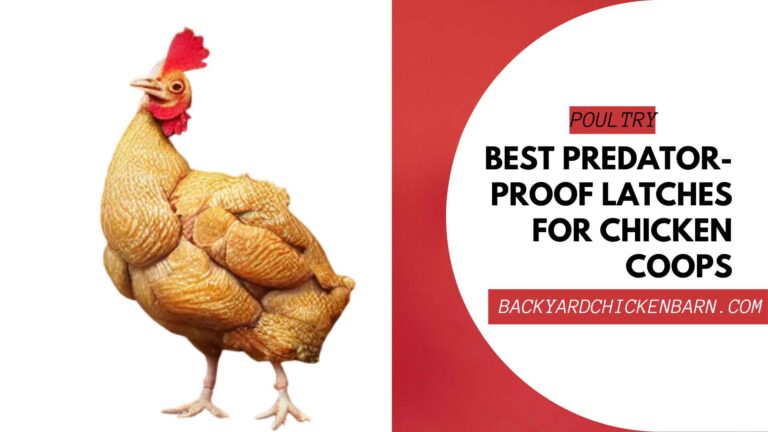Are Chickens Allowed in the Town of Oyster Bay?
No — in general, chickens and other poultry are not allowed in residential districts of the Town of Oyster Bay without special permission. The town’s zoning and animal control laws prohibit the keeping of fowl or farm animals unless a special use permit or variance is granted by the Board of Appeals. Below is a detailed, properly formatted guide explaining the rules, exceptions, and what you need to know if you live in Oyster Bay.
Town Laws and Ordinances
- Town Zoning Code (Chapter 246, Section 246-5.5.16) states that no property in a residence district may be used for housing, feeding, or harboring poultry or other farm animals unless a special use permit is granted by the Board of Appeals.
- The code requires any structure used for housing animals to be at least 50 feet from any lot line, a setback that makes compliance difficult for many suburban lots.
- Town Code Chapter 103 (Animals) also regulates fowl, including prohibitions against feeding or keeping poultry in most residential situations unless specifically permitted.
Special Use Permits and Variances
While the default rule prohibits chickens, residents can apply for a special use permit or variance. Here’s what that involves:
- The Board of Appeals reviews applications on a case-by-case basis.
- Factors considered include coop placement, distance from neighboring properties, sanitation, and potential nuisances such as odor or noise.
- The 50-foot setback remains a significant requirement even if a permit is granted.
- Many applications are denied because most residential lots cannot meet the distance requirement.
Why the Town Restricts Chickens
- Lot size and setbacks: Many properties are too small to accommodate a coop 50 feet from all lot lines.
- Nuisance concerns: Noise, odor, and pests are cited as reasons for prohibiting poultry in dense neighborhoods.
- Preservation of residential character: Zoning is designed to separate farm uses from suburban residences.
- Public health: The town prefers to regulate sanitation and animal welfare by limiting poultry in residential areas.
Resident Experiences
- Some residents report keeping a small number of hens quietly, but this is technically not legal without a permit.
- Roosters are effectively prohibited, as they cause noise complaints and are included in the definition of poultry/fowl.
- Petitions have been started by residents who want the law changed to allow a small number of hens for eggs, but no changes have yet been enacted.
Steps if You Want Chickens in Oyster Bay
- Check your zoning district. Residential districts generally prohibit poultry unless a permit is granted.
- Review lot size and setbacks. Measure distances to ensure whether you can meet the 50-foot setback for coops.
- Apply for a special use permit. Submit your application to the Board of Appeals if you want an exception.
- Prepare a coop plan. Show sanitation measures, predator protection, and noise/odor controls.
- Check HOA or deed restrictions. Even if the town grants a permit, private covenants may still prohibit poultry.
Pros and Cons of Keeping Chickens in Oyster Bay
- Pros:
- Fresh eggs for your household.
- Educational and family-friendly hobby.
- Composting benefits from chicken manure.
- Self-reliance and sustainable living opportunities.
- Cons:
- Most residential lots cannot meet the 50-foot setback requirement.
- HOA or deed restrictions may impose additional bans.
- Cost of building a compliant coop and maintaining proper sanitation.
- Risk of complaints or fines if rules are violated.
Common Misconceptions
- Some believe they can keep up to six hens without restriction, but this is not accurate under current Oyster Bay code.
- There is no automatic allowance for hens in residential districts; permits are always required.
- Petitions and community support do not change the law until the Town Board officially amends the ordinance.
Frequently Asked Questions
Can I have hens in Oyster Bay without a permit?
No. A permit or variance is required in all residential districts.
Are roosters allowed?
No. Roosters are considered fowl and are not permitted in residential districts.
What if my property is agricultural?
Properties zoned for agricultural use may have more flexibility, but typical residential properties cannot keep chickens without a permit.
What happens if I ignore the rules?
You may face enforcement action, including fines or orders to remove the coop and animals.
Conclusion
In the Town of Oyster Bay, chickens are not permitted by default in residential areas. Only residents who obtain a special use permit and meet strict requirements — including the 50-foot setback — may legally keep them. Most suburban properties cannot comply, which effectively bans chickens in much of the town. While community petitions show growing interest in changing the rules, for now, residents must either apply for a variance or wait for future law changes if they want to keep backyard hens.


